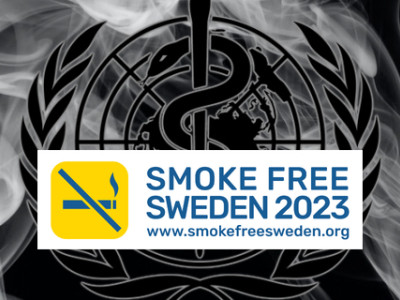Continuing its dismantling of the Government’s plan, the New Nicotine Alliance continues with a warning:
THE SMOKEFREE 2030 GOAL UNDER SERIOUS THREAT
“The only result of this will be a significant deterrent to smokers who are considering switching to vaping, an increase in sales of illicit products, and relapse by many back to smoking cigarettes. The government’s Smokefree 2030 target is now effectively dead.
“The Chancellor’s announcement cloaks itself as a health policy, and yet it shows no sign that anyone with any knowledge of smoking, vaping, nicotine or health has been consulted in its design.
“The government seems overly concerned about nicotine addiction, without any appreciation that it is an entirely different thing to harm. Even if that is the case, the proposal to tax non-nicotine products which, by definition, cannot be addictive makes no sense at all,” says the New Nicotine Alliance.
“The consultation document claims that one purpose of the tax is to “encourage consumers to choose lower strength or nicotine-free vaping products over higher strength ones due to the harms from nicotine addiction.”
“This is so absurd as to be laughable. People using lower strengths use higher volumes to take in the nicotine they want. Higher volumes mean more energy and potentially more exposure to contaminants and thermal decomposition products. The government’s infantile understanding of the policy area and obsession with nicotine (which is not the harmful element of combustible tobacco use) is driving consumers to increase potential harm. Those drafting the documents could have avoided such a schoolboy error by Googling ‘nicotine titration’ because it is clear they have never heard of it.”
THE GOVERNMENT’S STRATEGY WILL COST LIVES
“It is doubly counterproductive because stronger liquids will tend to be those used by people starting to vape who will now be punished at the highest level. Higher strength liquids will also be used long-term by people with poor mental health to stay off cigarettes – or at least they would have done without this new interference in what showed promise in saving the lives of people with mental health issues.
“The Chancellor’s insistence that ‘vapes can also play a positive role in helping people quit smoking’ is shown to be hollow when he has erected the greatest financial barrier to the products which can most effectively play that positive role. This, after the government has also vowed to ban single use vapes which have led to the most significant declines in smoking prevalence ever seen in this country, and despite pleas from public health organisations not to do so,” the New Nicotine Alliance concludes.
New Nicotine Alliance Chair, Louise Ross, an expert on smoking cessation for nearly two decades, comments: “Putting a higher tax on stronger e-liquids completely misses the point that the more heavily dependent smokers will need stronger liquid to stay smokefree. This will include people with poor mental health, people on benefits, people living in disadvantaged communities and those with challenging lives. Higher taxes will keep them smoking.
“The Swap to Stop scheme relies on heavily dependent smokers being convinced of the value of switching to a rechargeable, refillable vaping product. Adding taxation to e-liquids risks all that. People in poverty who would have been easily persuaded to switch will simply go back to smoking, and the opportunity to get them off cigarettes will be lost.”
Clive Bates, former Director of Action on Smoking and Health and a voluntary public health adviser to the NNA, said: “A tax on vapes is basically a tax on health. If they are serious about getting smoking down to five per cent by 2030, the last thing the government would be doing is making it more expensive and less appealing to switch from smoking to vaping, which the government knows poses only a small fraction of the risk.
“The irony is that these measures won't stop vaping, but they will mean more vapes are supplied through criminal networks, unscrupulous middlemen and dodgy retailers. If you want to do something about youth vaping, focus on licensing retailers and irresponsible marketing and packaging.
“These mistakes could have been avoided if the government consulted industry and consumer representatives who could have quickly pointed out the flaws. However, it has not done so, instead cobbling together an incoherent mess of proposals which can only do harm. The Chancellor’s proposals, and the naïve documents published to support them, are an embarrassment and should be revisited.”
The New Nicotine Alliance is a registered UK charity staffed by consumer volunteers, formed to increase understanding about the benefits of “new” risk-reduced nicotine products and a better recognition of long-term recreational use of nicotine as a powerful incentive for smoking cessation.
Photo Credit:
Dave Cross
Journalist at POTVDave is a freelance writer; with articles on music, motorbikes, football, pop-science, vaping and tobacco harm reduction in Sounds, Melody Maker, UBG, AWoL, Bike, When Saturday Comes, Vape News Magazine, and syndicated across the Johnston Press group. He was published in an anthology of “Greatest Football Writing”, but still believes this was a mistake. Dave contributes sketches to comedy shows and used to co-host a radio sketch show. He’s worked with numerous vape companies to develop content for their websites.
Join the discussion
Harm Reduction For The Rich
The United Kingdom risks becoming a harm reduction country only for the wealthy, according to Michael Landl of the World Vapers’ Alliance
CAPHRA Highlights Tobacco Control Flaws
The Coalition of Asia Pacific Tobacco Harm Reduction Advocates highlights the flaws in tobacco control which has led to the rise of black market in Australia
A Missed Opportunity at COP10
The Smoke Free Sweden movement says that COP10 was a missed opportunity to save millions of lives
COP10: Promote Tobacco Harm Reduction
Experts with Smoke Free Sweden are emphasising the urgent need for a Tobacco Harm Reduction approach at COP10












